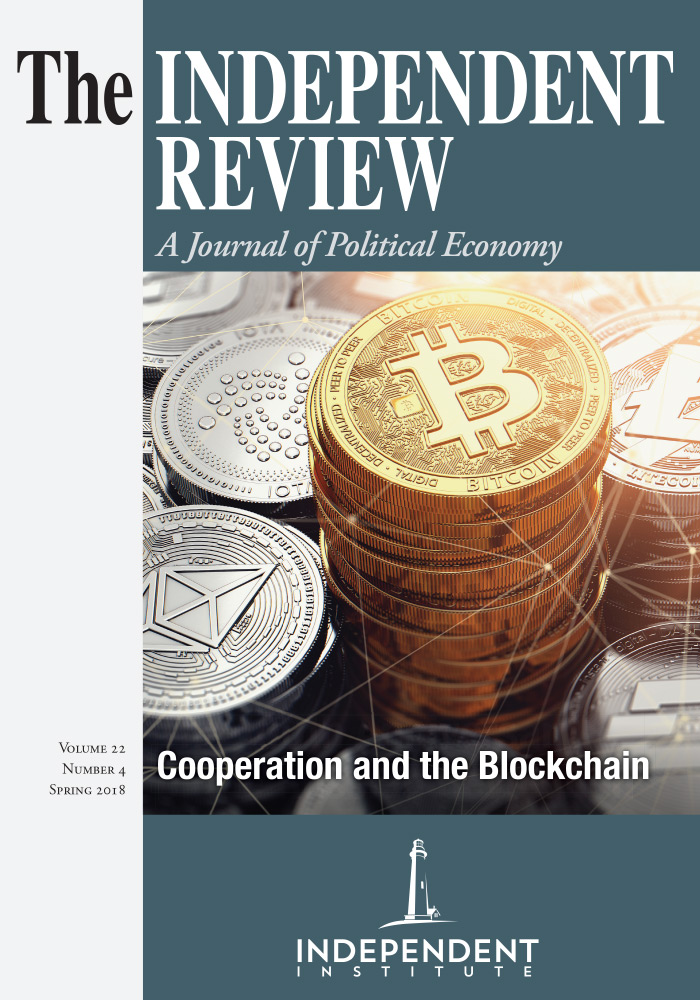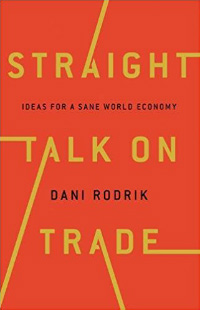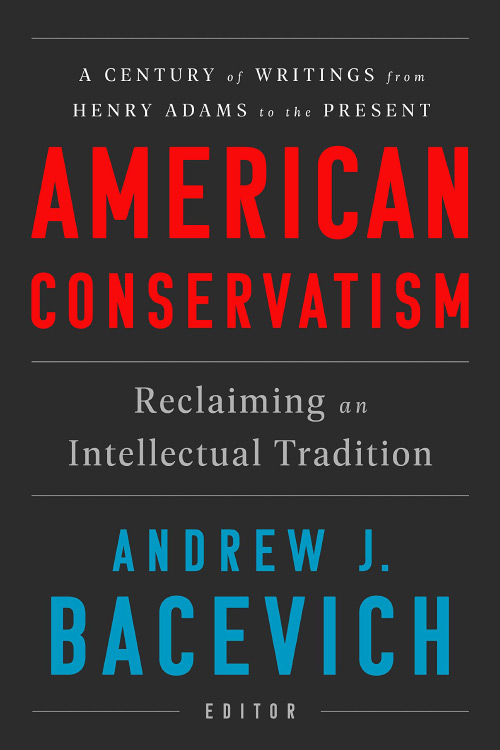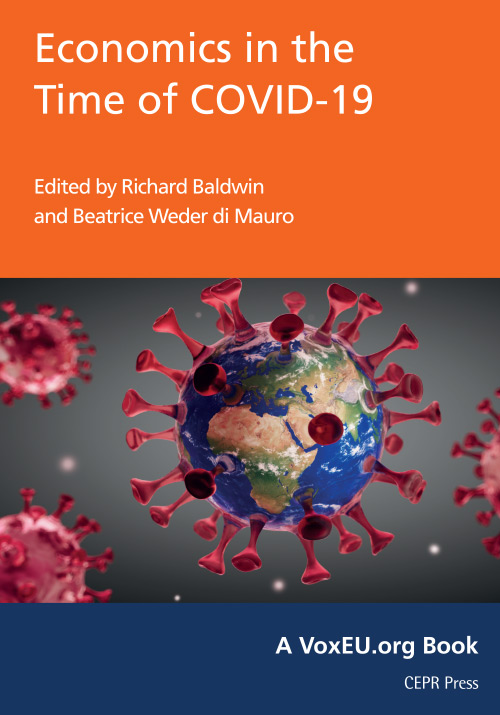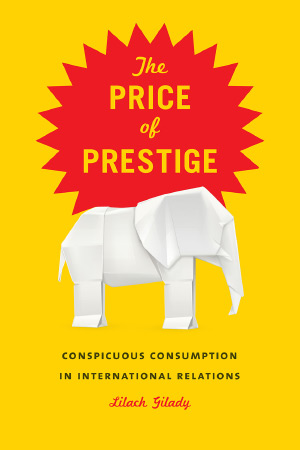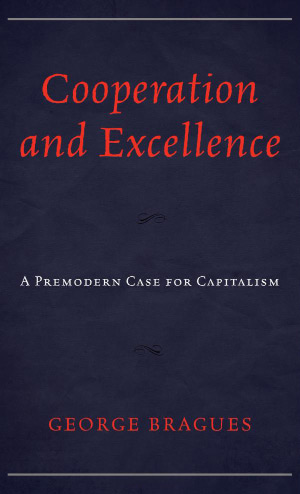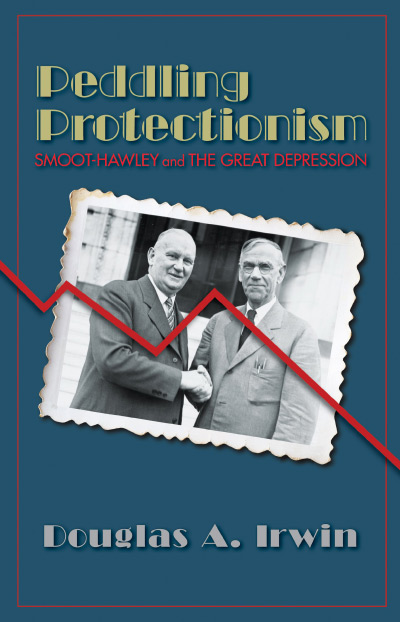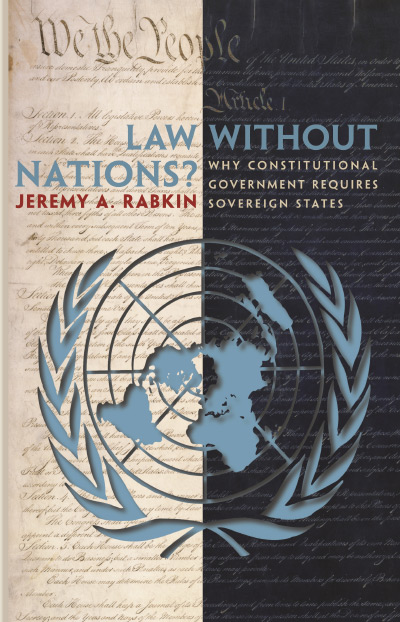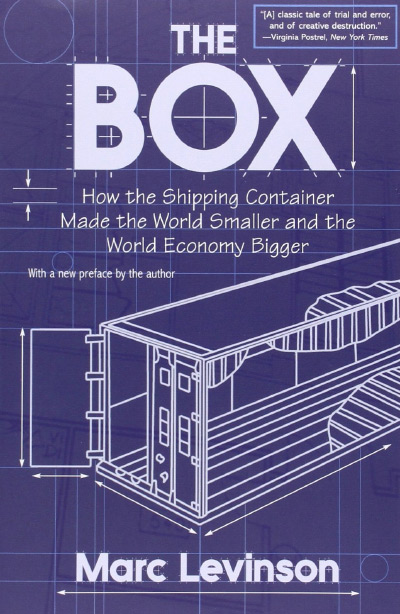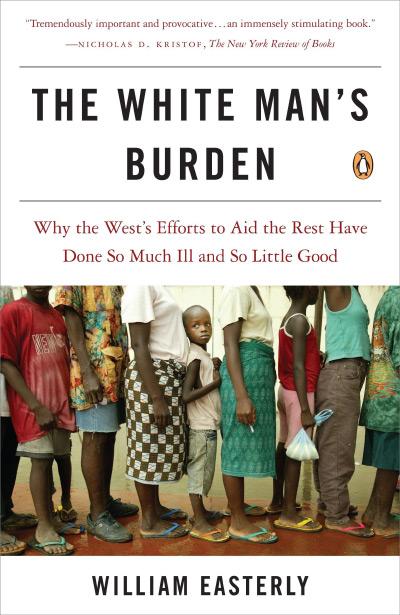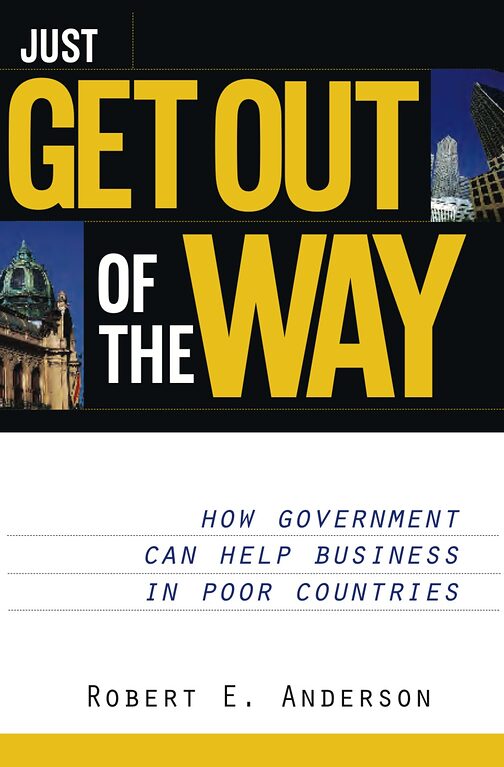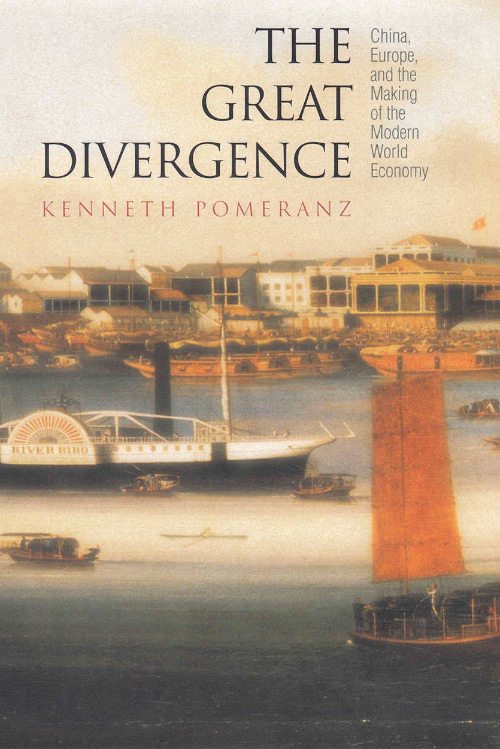There are phrases that serve the function of scare quotes. One is “trust me.” When the star of The Real White House of Pennsylvania Avenue utters his catch phrase “trust me...”, the one thing you can be sure of is that you cannot trust whatever follows. Another of those phrases is “straight talk,” so when I heard that Dani Rodrik’s new book was called Straight Talk on Trade, I thought “this can’t be good.” Unfortunately, that is the right reaction. First of all, the book isn’t primarily about trade and, second, the talk about trade is far from straight.
Straight Talk on Trade is essentially a repackaging of op-eds, mostly published online at the excellent Project Syndicate. Having this work collected together and organized in a more-or-less coherent way is handy, though there is a problem: unlike long-form essays, op-eds are intended to make one point, simply and clearly, not to develop an idea at length. Chaining a bunch of these together doesn’t make them any more analytical. The volume is organized into twelve “chapters,” which fall into three broad thematic sections: chapters 1 through 4 seek to make the case that something called “hyperglobalization” is inconsistent with democracy; chapters 5 through 8 seek to make the case that somethings called “ideas” matter; and the chapters 9 through 12 propose ways forward.
The core of the first four chapters is the notion that there is a fundamental inconsistency between democracy, the nation-state, and “hyperglobalization”—in fact, a trilemma (see Figure 1, from Rodrik, 2011). Given its centrality in the discussion, it is surprising that “hyperglobalization” is never defined.1 “Hyper” obviously means “too much,” so Rodrik isn’t going to argue that globalization is bad per se, but that too much globalization (or the “wrong kind” of globalization) is bad. Even though the first chapter is called “A Better Balance,” it’s hard to imagine how one improves the balance of “hyperglobalization.” The real problem here is not globalization, “hyper” or otherwise, but with the notion that Rodrik has identified a genuine trilemma—of which globalization is an essential part.2 Political scientists, sociologists, historians and economists have all systematically analyzed the fundamental consistency of capitalism and democracy.3 One of the essential building blocks of this literature is the recognition that an essential element of the political economy of modern capitalism is the constitution of the economy as structurally separate from (the rest of) civil society. This yields a political economic structure with a clear similarity to Rodrik’s (see figure 2, based on Habermas, 1975). The difference is that there is no suggestion of a trilemma. Instead, much of this literature is concerned with a tension between capitalism and democracy which the state seeks to mediate. Failure to manage that tension leads to one of a variety (three for Habermas) of potential crises: too much injection of “non-economic” norms in the economy causes a rationality crisis; too much leakage of the individualist norms that regulate the economy produces breakdown of the social norms that make social life livable (a “motivation crisis”); and inconsistent demands on the state produce a legitimation crisis. Rather than the rigid “trilemma,” this is a flexible framework that recognizes that modern capitalist political economies are characterized by tensions that must be and, in fact, are managed. As with Polanyi’s (1944/2001, Chapter 11) “double movement,” this tension is in a constant state of political renegotiation.
So how does globalization relate to this? For Polanyi, the issue was fundamentally national capitalism. While trade, investment, and migration were all essential parts of the development of national capitalism, capital and production facilities in particular were essentially national. Trade was about finished goods or finished capital goods. What is distinctive about current globalization, what Richard Baldwin (2016), in what I believe is the single best book on current globalization, calls the “second unbundling,” is the emergence of global production structures anchored on the U.S., Europe and Japan, with China in a special relationship to all three of these regional structures. Where the earlier version of globalization could be relatively easily managed through a combination of national economic policy and relatively straightforward multilateral controls on distorting policies, complex production relations distributed across many countries rely on the kind of predictable legal and political structures that played an essential role in the development of national capitalism. It is this misunderstanding of what has changed in globalization that leads Rodrik to argue (p. 218-221) for what he calls “subsidiarity” whereby, because the important trade issues are domestic with few international spillovers, trade should be treated as a fundamentally domestic issue with minimal global governance. [Is deleting this comma OK? Do I understand the middle clause correctly?] It is the conditional clause in the middle of the preceding sentence that seems simply wrong. As with the struggle to manage the domestic relationship between capitalism and democracy, that produces Polanyi’s “double movement,” managing this relationship in an environment of generalized global production is a challenge, but not an impossibility.
The middle section of Straight Talk on Trade deals with what Rodrik calls “ideas.” This key concept is never defined, but it is clearly not the results of research (i.e. the internal discourse of social science). Instead, “ideas” seem to be the building blocks of the public political discourse. Thus, “economists” are criticized not for bad research, or bad research practice, but for inappropriate public discussion of that research.4 That is, “they” (the economists) are accused of inappropriate self-censorship in their public pronouncements. In this, it is never clear whether “they” are slaves to ideology or actively dishonest (though one section is called “when economists misbehave” (p. 117)). The main criticism seems to be that “economists” could adopt a public framing of their research that is more consistent with his preferred framing than their own. An internal argument in this regard is Rodrik’s claim that his preferred framing, in addition to being more honest, would actually constitute a better defense of a liberal trade regime than the one attributed to that regime’s most committed defenders. The problem with this is that it would require those defenders to accept Rodrik’s model of the world, which he does not really provide and so cannot really provide systematic evidence.
This is, in any event, an odd suggestion given that the real core of the second section of Straight Talk on Trade is about the struggle to frame politics—that is, the struggle over what ideas will define the public discourse of policy. The argument proceeds as a critique of the way “economists” model political economic interaction, but an interesting and important claim is that political competition takes place over the definition of the terms of that competition as well as within those terms. The ideal notion of civil society is that iit is where we work out in public who we are going to be as a collectivity and what that is going to mean in terms of support for broad outlines of policy.5 This is the core of the sorts of theories of deliberative democracy that seem to play an essential role in Rodrik’s notion of a well-ordered democratic society (see e.g. Gutmann and Thompson, 1996, Dryzek, 2000). However, it should be clear that this form of competition is only one part of political competition. It is certainly true that all social life, including politics and economics, is socially constructed (Searle, 1995), but it is hard to develop a systematic research programme around this platitude (Hacking, 1999). Instead, as in Rodrik, this is mostly used to construct a critique and illustrate that critique with a more-or-less sensible narrative. It would be crazy to ignore material competition (i.e. the use of real resources) over fixed dimensions of conflict. Given that there are many narratives of this sort that stand as a ready warning against taking one’s models too seriously, and that economists are not generally trained as psychologists or literary critics, it is not clear to me that the logic of comparative advantage doesn’t suggest that economists, qua economists, model the political economy pretty much as they already do. Let me be clear: I am sympathetic to the programme of trying to develop models that use “ideas” to move people’s self-defined identity as a political strategy (Nelson et al., 2017), but I don’t believe that all good research must explicitly consider social construction. Furthermore, I have taught, learned from, and contributed to the political economy literature that treats competition as taking place over a fixed policy environment and, while I certainly agree that this literature could be extended in a variety of ways, I believe that it makes a real contribution to our understanding of the politics of trade policy.
The last third of Straight Talk on Trade deals with “what to do about globalization?” Given that policy advice should emerge from a well-specified analysis of a particular situation or problem, this section suffers more from being made up of op-eds than the other two sections. That is, there are a large number of what are essentially conclusions asserted without the analysis that gives those conclusions meaning. Much of the advice seems eminently sensible and much of it I just disagree with. There are a few of the latter that seem important enough to identify specifically. First, both of the things that “will not work” seem to me to be essential elements of a sensible relatively open democratic capitalism: compensation; and global governance. In abstract terms, it has been clear since Bergson and Samuelson (see chapter 8 of Samuelson, 1947) that compensation is an essential part of using the Pareto rule. More importantly, from any moral or practical perspective, insuring people against short- to medium-term losses from trade (or other shocks) should be part of a system which is both democratic and capitalist. Rodrik asserts that it is “too late for compensation” (p. 203) even though he refers to evidence that countries with effective welfare states support greater openness to trade. This misses the main historical message of Polanyi’s “double movement,” the dynamic of capitalist democracies is driven by the tensions between the demands of the market and the demands of community. It is never too late for compensation. Similarly, global governance is a “false promise” (p. 206) because civil society is national and so are nation states. Thus, democratically legitimate trade policy must be fundamentally rooted in national concerns. As I noted above, the current form of trade globalization (global value chains, etc.) literally require international cooperation. Rodrik presents this as requiring strict, one-size-fits-all, rules that constitute a threat to national sovereignty and democratic legitimation, but this is not what proponents of a liberal international order argue for. Rather, the most sensible proposals emphasize regulatory cooperation (not harmonization). Much of this need not be fully multilateral because the great bulk of value chains are regional in nature and the major national players in these regional economies are also members of the World Trade Organization (WTO). The claim is not that constructing these arrangements will be easy, only that they will be essential (Hoekman and Nelson, 2017).
Another tricky issue relates to Rodrik’s “new rules for the global economy” (Chapter 10). The core of this analysis is Rodrik’s attempt to forge a link between his version of a discursive model of democracy and the details of a democratically legitimate trade policy. The first issue relates to whether there is really much of a public discourse on trade policy. There is no question but that there was considerable public discussion of trade policy around the campaigns of Donald Trump and, especially, Bernie Sanders, but we have seen this before (Richard Gephardt, Ross Perot, the 1999 Seattle protests at the WTO ministerial meeting) and it should not be forgotten that trade didn’t really work for Sanders. In each of those earlier contexts (Japan, newly-industrialized countries, the WTO) there was a lot of talk about how the politics of trade were now going to be transformed, and they were not. This time certainly could be different, the U.S. has a president without the post-war elite commitment to trade and Britain is withdrawing from the EU, but it is just too early to say. In both the U.S. and the UK the apparently anti-globalist outcomes were produced in large part by racism/cultural politics (in no small part about migration), gender and, as always, a wide variety of specific local issues. My reading of the literature on public opinion, for what it is worth (not much, I’m a trade economist not a public opinion researcher), is that public opinions about trade are very weakly held except for a very small number of activists for whom it is a key issue. In earlier work on NAFTA, Keith Hall and I showed that public opinion moved a lot even in the absence of a change in the information environment (Hall and Nelson, 2004). Without an ongoing public discourse about trade, it is hard to be confident of any claim about the sort of warrant such a discourse would provide for trade policy.
Rodrik’s seven “new rules” are actually completely standard. In that context, there is nothing unusual about committing to policy and even to change in political structure, as long as there are protections of sovereignty. This is exactly how the GATT and now the WTO work. However, Rodrik seeks to lever his notion of discursive democracy to a claim about fair trade, where that is understood to mean no “social dumping.” “Social dumping” sounds bad, but Rodrik never defines it. Discursive politics will define it, but his example has to do with bargaining rights. Unfortunately, this seems like a particularly bad example. Within the U.S. some states have “right to work” laws and some do not. Thus, when a firm moves from a closed shop state to a right to work state (i.e. to a state where policy makes it legal to restrict bargaining rights), Rodrik’s interpretation of fairness would permit some form of restriction. The same applies, perhaps more clearly, to trade between the U.S. and the EU, where the former permits a variety of management practices that would be illegal in Europe. At the same time, when discussing trade with poorer countries, the issue is “exchange of policy space.” Thus, on the one hand: “social dumping that undermines democratically legitimated domestic practices is not acceptable (full stop)” (p. 232); but poorer countries should not be “saddl[ed] with restrictive rules on intellectual property, industrial policies, capital account regulations, and investor rights...” (p. 235). Given that China is unquestionably a “poorer country” (technically an upper middle income country in the World Bank data), these seem inconsistent. Rodrik’s solution to this is: “Public discussion and deliberation are the only way democracies can sort out the contending values and trade-offs at stake” (p. 235). I have no idea what this means.
So, at the end of the day, who is this book for? It is not for economists. Recall “economists” are almost always “they.” Rodrik places himself outside the charmed circle. His advice to “economists” is be rhetorically more honest and treat “ideas” more seriously. It is also not for policy makers. The recommendations are too general and constitutional to provide them with help. Nor is for the average citizen. This book isn’t really “straight talk” of the sort that provides grist for public deliberation (if such deliberation were to occur). In addition Rodrik’s model of democracy is too fragile to be taken very seriously. It is an example of what Achen and Bartels (2016) call the “folk theory of democracy” and spend their whole book eviscerating. They are particularly scathing on claims of the form “the cure for poorly performing democracy is more democracy,” which is essentially Rodrik’s point. With particular reference to deliberative democracy, and leaving aside whether trade policy would get much discussion in any discursive context, when we move away from theory the empirical support for deliberative democracy as a practical basis for specific policy determination is weak (Parkinson, 2003, Mutz, 2006). This is essentially a brief for the prosecution against “economists” on “hyperglobalization.” Unfortunately, it isn’t really good at this because its origins in op-eds means that none of the arguments are developed in sufficient detail or sophistication to provide much of a brief. One presumes that his defense would be that he can’t develop the arguments at length because everyone already knows their positions, it would take too long, and that would detract from the main line of the argument. Ironically, this is also the defense of “economists” in their public discourse on globalization.
Dani Rodrik has written many fine books, on globalization, development, and the economics profession, but this is not one of them. If you want real “straight talk on trade” read Richard Baldwin’s (2016) The Great Convergence; if you want to know how and when markets work, read McMillan’s (2002) Reinventing the Bazaar; and if you want an insider’s argument about what works and doesn’t work in the dismal science, read Rodrik’s (2015) Economics Rules.
References
Achen, Christopher H. and Larry M. Bartels (2016). Democracy for Realists: Why Elections Do Not Produce Responsive Government. Princeton: Princeton University Press.
Baldwin, Richard E. (2016). The Great Convergence: Information Technology and the New Globalization. Cambridge, Massachusetts: The Belknap Press of Harvard University Press.
Dryzek, John S. (2000). Deliberative Democracy and Beyond : Liberals, Critics, Contestations. Oxford ; New York: Oxford University Press.
Egger, Peter; Joseph Francois; Miriam Manchin and Douglas Nelson (2015). “Non-Tariff Barriers, Integration and the Transatlantic Economy.” Economic Policy, V.30-#83, 539-84.
Gutmann, Amy and Dennis F. Thompson (1996). Democracy and Disagreement. Cambridge, Mass.: Belknap Press of Harvard University Press.
Habermas, Jürgen (1975). Legitimation Crisis. Boston: Beacon Press.
Hacking, Ian (1999). The Social Construction of What? Cambridge, Mass: Harvard University Press.
Hall, H. Keith and Douglas R. Nelson (2004). “The Peculiar Political Economy of NAFTA: Complexity, Uncertainty and Footloose Policy Preferences,” in A. Panagariya and D. Mitra eds, The Political Economy of Trade and Foreign Investment Policies. Amsterdam: Elsevier, 91-109.
Hoekman, Bernard M. and Douglas R. Nelson (2017). “21st Century Trade Agreements and the Owl of Minerva,” Murphy Institute working paper,
Klein, Michael W. and Jay C. Shambaugh (2010). Exchange Rate Regimes in the Modern Era. Cambridge, Mass.: MIT Press.
Krasner, Stephen D. (1999). Sovereignty: Organized Hypocrisy. Princeton, N.J.: Princeton University Press.
McMillan, John (2002). Reinventing the Bazaar : A Natural History of Markets. New York: Norton.
Meese, Richard A. and Kenneth S. Rogoff (1983). “Empirical Exchange Rate Models of the Seventies: Do They Fit out of Sample?” Journal of International Economics, V.14-#1/2, 3-24.
Mundell, Robert A. (1963). “Capital Mobility and Stabilization Policy under Fixed and Flexible Exchange Rates.” The Canadian Journal of Economics and Political Science, V.29-#4, 475-85.
Mutz, Diana Carole (2006). Hearing the Other Side: Deliberative Versus Participatory Democracy. Cambridge ; New York: Cambridge University Press.
Nelson, Douglas R.; Yongsheng Xu and Nicardo Mcinnis (2017). “Preference, Identity and the Political Economy of Ideal Capitalism,” Murphy Institute working paper,
Obstfeld, Maurice and Kenneth S. Rogoff (1995). “Exchange Rate Dynamics Redux.” Journal of Political Economy, V.103-#3, 624-60.
____ (1996). Foundations of International Macroeconomics. Cambridge, Mass.: MIT Press.
Parkinson, John (2003). “Legitimacy Problems in Deliberative Democracy.” Political Studies, V.51-#1, 180-96.
Polanyi, Karl (1944/2001). The Great Transformation: The Political and Economic Origins of Our Time. Boston, MA: Beacon Press.
Riker, William H. (1986). The Art of Political Manipulation. New Haven: Yale University Press.
Rodrik, Dani (2011). The Globalization Paradox: Democracy and the Future of the World Economy. New York: W. W. Norton & Co.
____ (2015). Economics Rules : The Rights and Wrongs of the Dismal Science. New York: W.W. Norton & Company.
Rueschemeyer, Dietrich; Evelyne Huber and John D. Stephens (1992). Capitalist Development and Democracy. Chicago: University of Chicago Press.
Samuelson, Paul A. (1947). Foundations of Economic Analysis. Cambridge,: Harvard University Press.
Searle, John R. (1995). The Construction of Social Reality. New York: Free Press.
Sen, Amartya K. (2006). Identity and Violence: The Illusion of Destiny. New York: W. W. Norton & Co.
____ (2009). The Idea of Justice. Cambridge, Mass.: Belknap Press of Harvard University Press.
Figure 1: Rodrik’s Trilemma
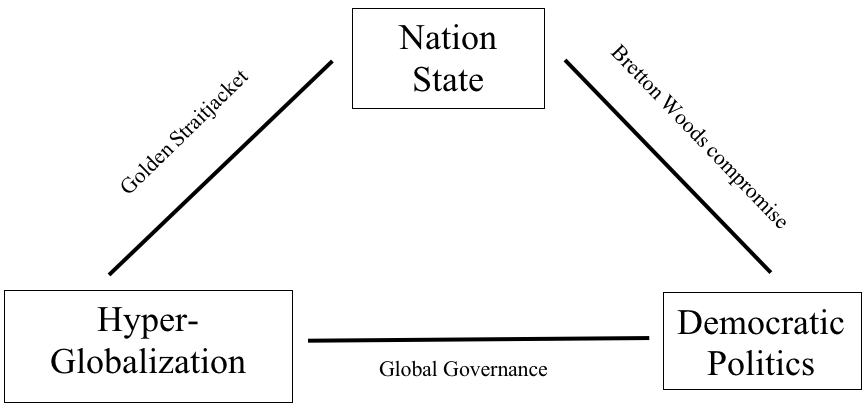
Figure 2: The Modern Political Economy [after Habermas]
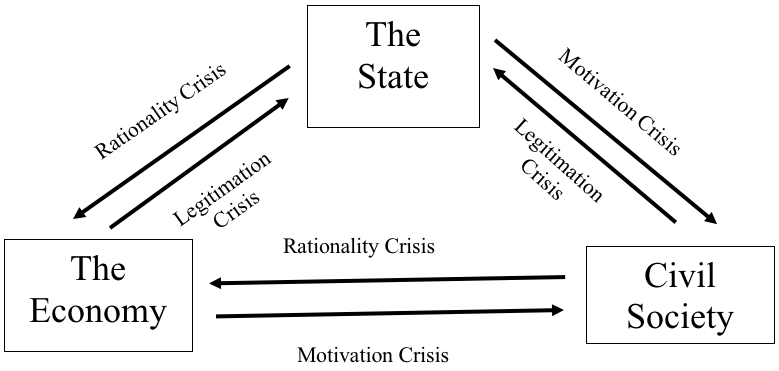
1 It is worth noting that, like “straight talk” and “trust me,” if you precede anything, however good, with “hyper,” that thing becomes bad. Consider, say, “hyperdemocracy.” Surely we all believe that “democracy” is an unquestioned good, but “hyperdemocracy,” whatever it is, just sounds bad. The core of the nation state for Rodrik is sovereignty, and most would find sovereignty a general good (though see Krasner (1999) for a subtle discussion of the concept), but surely, whatever it is, “hypersovereignty” is bad. That’s the point, this isn’t analysis, its rhetoric.
2 It should also be clear that Rodrik’s trilemma is not a trilemma in the same way that Mundell’s open economy trilemma is a trilemma. The latter involves three policy goals, i.e. objects of choice for a state that are all, at least in principle, things a state would like to have: fixed exchange rate, monetary policy targeted on a domestic policy goal (e.g. inflation/unemployment); and free capital mobility. Mundell (1963), and many others, show that, in a standard open economy Keynesian model, these three goals are inconsistent. This has proven to be a useful way of organizing research on exchange rate regimes and for thinking about policy (Klein and Shambaugh, 2010). This isn’t the way Rodrik’s “trilemma” works. First, none of the three components are really objects of choice. We might imagine globalization, defined carefully, as a policy choice, but sovereignty and democracy are just social facts. Instead, the way Rodrik’s analysis works, “hyperglobalization” is definitionally inconsistent with sovereignty, and democratic politics definitionally requires sovereignty. Thus, a chain of definitions, not an analytical structure, produces the “trilemma.”
3 This literature is immense and growing all the time. An excellent overview of the issues, as well an original attempt to provide systematic empirical evidence, can be found in Rueschemeyer et al. (1992).
4 Here is as good a place as any to note an odd rhetorical strategy adopted by Rodrik: with a couple of exceptions, “economists” are always “they.” The oddity, of course, is that Rodrik is a full professor of economics at Harvard University, and has been since 1996. You can’t be more of an insider than that. The other odd thing is that economists are virtually always “economists,” not particular scholars. For a book that is about “straight talk on trade” there are almost no mentions of specific trade economists. In the half dozen cases where specific work by trade economists is cited, it is always in support of specific elements of Rodrik’s argument. The one critical mention is of a policy study applying computational general equilibrium methods, which is then compared to another study using similar methods (but very different assumptions) yielding very different results. At no point does he mention that there are many studies like the first cited one, and that the latter is a member of a much smaller, and much more controversial, class. In terms of full disclosure, I am a coauthor on a study of the Transatlantic Trade and Investment Partnership in the first class (Egger et al., 2015).
There are also some odd choices in terms of being singled out as economists with bad ideas. Amartya Sen, one of the great champions, and practitioners, of socially, economically and politically sophisticated thinking about policy, and the least doctrinaire economist I can think of, is quoted wildly out of context (p. 17) as asserting that “national borders [are] a hindrance ... that can and should be overcome.” This is from Sen’s excellent The Idea of Justice (Sen, 2009) where he is making an argument, cited with approval, but referring to a different book (Sen, 2006), at a later point by Rodrik (p. 168), about multiple identities. Similarly, Rodrik revives the discussion around Reinhart and Rogoff’s short conference paper that became a cause célèbre for the anti-economist crowd. The irony in this case is that Kenneth Rogoff is known for his willingness to pursue empirical results wherever they lead, even if they are inconsistent with key assumptions of standard models (e.g. Meese and Rogoff, 1983), is a co-author of what has become the industry standard dynamic, open-economy Keynesian model (Obstfeld and Rogoff, 1995) and a textbook that makes that model central to economics pedagogy (Obstfeld and Rogoff, 1996).
5 With respect to the critique, it is not clear what Rodrik wants political economists to do. Once we permit the space of political competition to be determined by (an earlier round of?) political competition, we move rapidly away from anything that can yield comparative static (or dynamic) predictions. This allows one to construct a narrative, disciplined by the conceptual structure one has produced, and that narrative may be interesting, informative and/or useful, but it will remain a narrative of a specific event or events. Riker (1986) is an entertaining source of precisely this sort of narrative. Alternatively, one can tie down some other, at least equally empirically relevant causal structures, to focus on some well-specified notion of competition over a space of ideas, but it is hard to imagine that such an analysis would satisfy the kind of critique launched in this section of the book.

